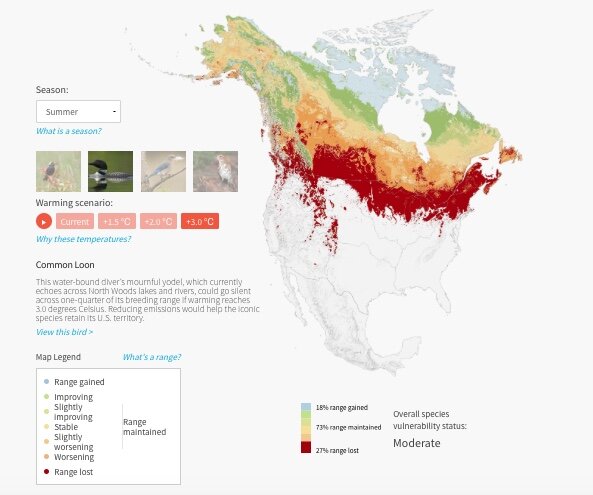Audubon.org
Common Loon
This water-bound diver’s mournful yodel, which currently echoes across North Woods lakes and rivers, could go silent across one-quarter of its breeding range if warming reaches 3.0 degrees Celsius. Reducing emissions would help the iconic species retain its U.S. territory.





